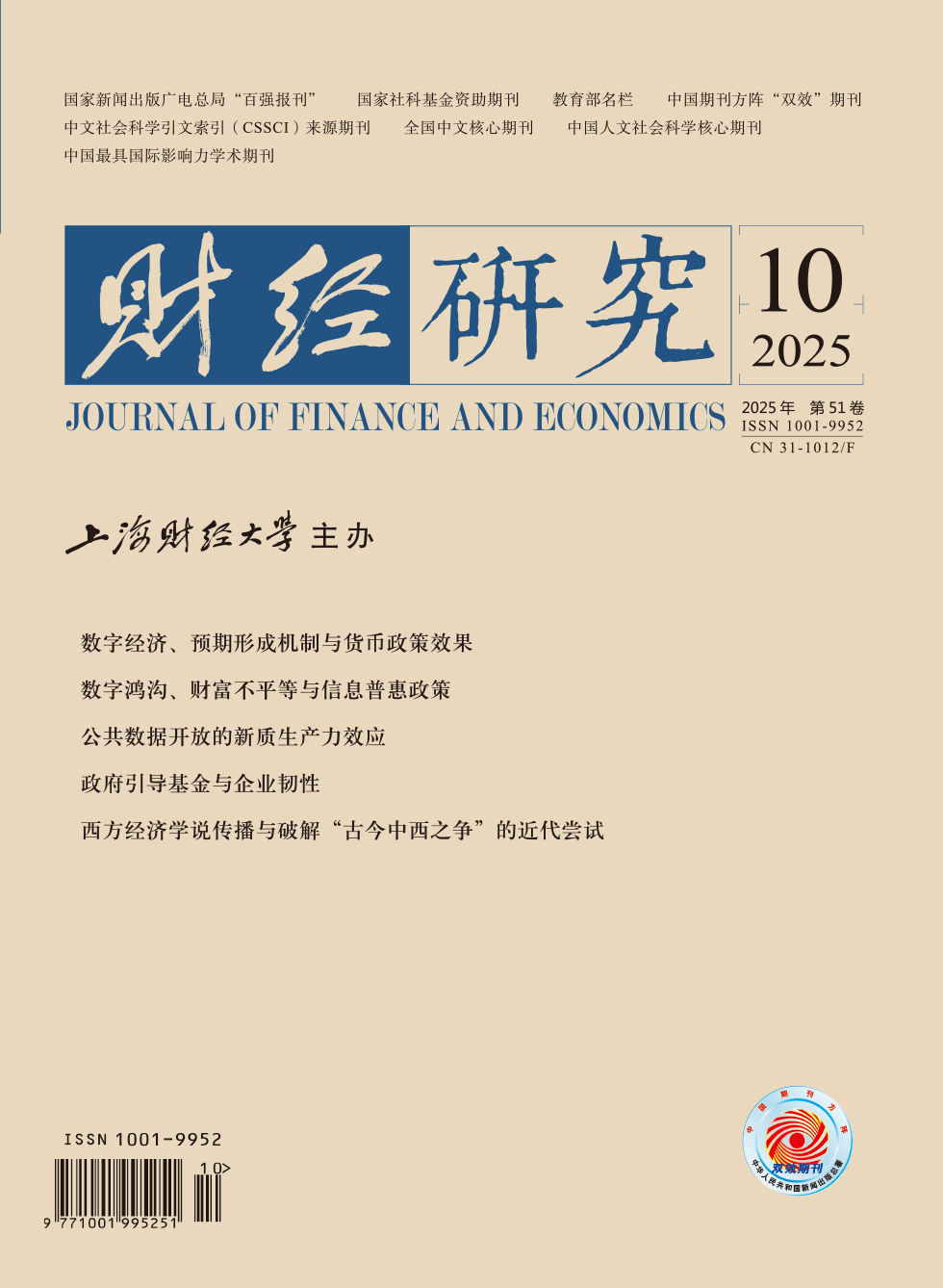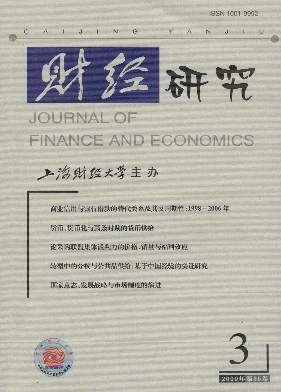扶弱抑强:组织中的资源配置歧视
财经研究 2009 年 第 35 卷第 03 期, 页码:69 - 80
摘要
参考文献
摘要
文章基于锦标赛模型分析了组织中扶弱抑强的歧视性资源配置现象。模型表明,若互相竞争的代理人能力不对称,则扶弱抑强的歧视性资源配置政策将降低刺激代理人努力的竞赛奖金(即激励成本),因而有利于委托人。模型还表明,强者与弱者的能力差距必须在一定范围内,委托人才能通过竞赛激励合约得到好处;并且委托人倾向在代理人能力相差不大时减少代理人生产风险,而在代理人能力相差悬殊时选择增加代理人生产风险,即通过操纵代理人的"运气"来促进代理人的竞争。文章分析也有助于思考广泛存在的各种扶弱抑强的社会现象。
[1]陈志俊,邱敬渊.分而治之:防范合谋的不对称机制[J].经济学(季刊),2003,3(1):195-215.
[2]Bhattacharya S,J L Guasch.Heterogeneity,tournaments,and hierarchies[J].Journalof Political Economy,1988,96(4):867-881.
[3]Hirshleifer J,J Riley.The analysis of uncertainty and information[M].U.S.:Cam-bridge University Press,1995:Chap 10.
[4]Ishiguro S.Collusion and discri minationin organizations[J].Journal of Economic The-ory,2004,116:357-369.
[5]Lazear E P,S Rosen.Rank-order tournaments as opti mal labor contracts[J].Journalof Political Economy,1981,89(5):841-864.
[6]Meyer M.Learning from coarse information:Biased contests and career profiles[J].Reviewof Economic Studies,1991,58(1):15-41.
[7]Milgrom P,J Roberts.Economics,organizations,and management[M].EnglewoodCliffs,NJ:Prentice-Hall,Inc,1992.
[8]Moldovanu B,A Sela.The Opti mal allocation of prizes in contests[J].American Eco-nomic Review,2001,91(3):542-558.
[9]Nalebuff B J,J E Stiglitz.Prizes and incentives:Towards a general theory of compen-sation and competition[J].Bell Journal of Economics,1983,14(1):21-43.
[10]Reed WJ.The Pareto,Zipf,and other power laws[J].Economics Letters,2001,74(1):15-19.
[11]Rosen S.Prizes andincentives in eli minationtournaments[J].American Economic Re-view,1986,76(4):701-715.
[12]Skaperdas S,L Gan.Risk aversionin contests[J].The Economic Journal,1995,105:951-962.
[13]Yun J.Onthe efficiency of the rank-order contract under moral hazard and adverse se-lection[J].Journal of Labor Economics,1997,15(3):466-494.
[2]Bhattacharya S,J L Guasch.Heterogeneity,tournaments,and hierarchies[J].Journalof Political Economy,1988,96(4):867-881.
[3]Hirshleifer J,J Riley.The analysis of uncertainty and information[M].U.S.:Cam-bridge University Press,1995:Chap 10.
[4]Ishiguro S.Collusion and discri minationin organizations[J].Journal of Economic The-ory,2004,116:357-369.
[5]Lazear E P,S Rosen.Rank-order tournaments as opti mal labor contracts[J].Journalof Political Economy,1981,89(5):841-864.
[6]Meyer M.Learning from coarse information:Biased contests and career profiles[J].Reviewof Economic Studies,1991,58(1):15-41.
[7]Milgrom P,J Roberts.Economics,organizations,and management[M].EnglewoodCliffs,NJ:Prentice-Hall,Inc,1992.
[8]Moldovanu B,A Sela.The Opti mal allocation of prizes in contests[J].American Eco-nomic Review,2001,91(3):542-558.
[9]Nalebuff B J,J E Stiglitz.Prizes and incentives:Towards a general theory of compen-sation and competition[J].Bell Journal of Economics,1983,14(1):21-43.
[10]Reed WJ.The Pareto,Zipf,and other power laws[J].Economics Letters,2001,74(1):15-19.
[11]Rosen S.Prizes andincentives in eli minationtournaments[J].American Economic Re-view,1986,76(4):701-715.
[12]Skaperdas S,L Gan.Risk aversionin contests[J].The Economic Journal,1995,105:951-962.
[13]Yun J.Onthe efficiency of the rank-order contract under moral hazard and adverse se-lection[J].Journal of Labor Economics,1997,15(3):466-494.
引用本文
董志强. 扶弱抑强:组织中的资源配置歧视[J]. 财经研究, 2009, 35(3): 69–80.
导出参考文献,格式为:





 6966
6966  3946
3946

